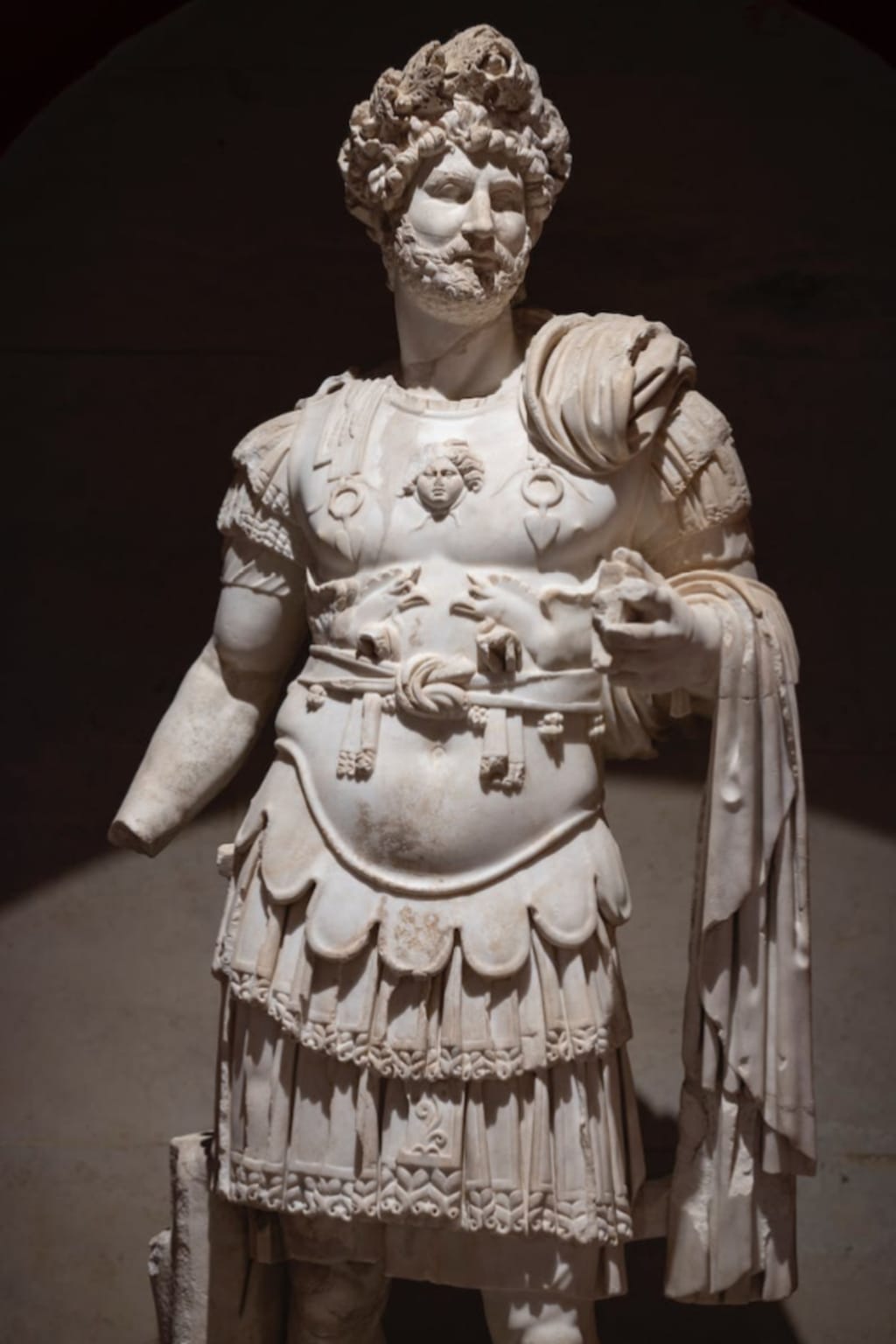Content warning
This story may contain sensitive material or discuss topics that some readers may find distressing. Reader discretion is advised. The views and opinions expressed in this story are those of the author and do not necessarily reflect the official policy or position of Vocal.
The Tale Emperor Nero and Young Sporus
A true crime account of the most controversial Roman Emperor

Nero was a Roman emperor who ruled from 54 to 68 AD. He was known for his extravagance, his love of the arts, and his cruelty towards those who opposed him. One of the most controversial aspects of Nero’s reign was his relationship with a young boy named Sporus.
Sporus was a beautiful young boy who caught Nero’s eye. According to historical accounts, Nero had Sporus castrated and then married him in a public ceremony, treating him as if he were a woman. Nero was said to be deeply in love with Sporus, and he showered him in gifts and affection.
This relationship caused a scandal in Roman society, as it was widely seen as immoral and shameful. Nero’s actions were seen as a violation of Roman morality and values, and many of his subjects were outraged by his behaviour.
Despite the public backlash, Nero continued his relationship with Sporus, treating him as if he were his own wife and even going as far as dressing him in women’s clothing. This behaviour only served to further alienate Nero from his subjects, who saw him as a corrupt and degenerate ruler.
The relationship between Nero and Sporus came to sudden end when Nero died in 68 AD. Sporus was left alone and vulnerable, and he was eventually killed by one of Nero’s successors, who saw him as a symbol of Nero’s excesses and immortality.
Today, the story of Nero and Sporus is seen as a cautionary tale about the dangers of unchecked power and the corrupting influence of absolute authority. It serves as a reminder that even the most powerful rulers are subordinate to the same moral codes as everyone else, and that violating those codes can have dire consequences for both the individual and society as a whole.
Some historians suggest that Nero’s relationship with Sporus may have been motivated by a desire to emulate the Greek tradition of pederasty, while others argue that it was simply a reflection of Nero’s erratic and unpredictable behaviour. Regardless of the motivations behind their relationship, it is clear that Nero’s association with Sporus was a source of controversy and criticism during his reign.
About Roman Emperor Nero
Nero Claudius Caesar Augustus Germanicus, commonly known as Nero, was the fifth Roman emperor, who ruled from 54 to 68 AD. He was born on December 15, 37 AD, in Antium, Italy, to Gnaeus Domitius Ahenobarbus and Agrippina the Younger, who was the sister of the emperor Caligula.
Nero’s early life was marked by tragedy and instability. His father died when he was two years old, and his mother was exiled by the emperor Claudius when Nero was 13. However, Agrippina returned to Rome in 49 AD and began to plot against Claudius, whom she saw as a threat to her son’s future. In 54 AD, Claudius died, and Nero was proclaimed emperor at the age of 16.
At the beginning of his reign, Nero was popular with the people of Rome, who saw him as a young and charismatic leader. He implemented a number of reforms, including reducing taxes and improving the rights of slaves. However, Nero’s reign was also marked by a series of scandas and controversies. He was accused of having his mother and his first wife, Claudia Octavia, murdered, and he was widely criticised for his extravagant spending and his association with the Greek tradition of pederasty.
In 64 AD, a fire broke out in Rome that destroyed much of the city. Nero was widely criticised for his response to the fire, which included blaming the Christians and launching a brutal persecution of the religion. Nero’s reign also saw a number of military conflicts, including a war with Parthia and a rebellion in Britain.
In 68 AD, Nero’s reign came to an end when he was declared a public enemy by the Senate and forced to flee Rome. He committed suicide in June 9, 68 AD, at the age of 30, brining an end to the Julio-Claudian dynasty and paving the way for the Year of the Four Emperors. Despite his controversial reign, Nero remains a fascinating figure in Roman history, known for his artistic pursuits, his love of theatre, and his infamous association with Sporus.
About the Creator
G.A.L. Grace
I began writing at 12, but struggled to gain positive results from my work. I joined vocal with the hope that my writing may mean something to at least one person. My greatest ambition is to become an author; to educate and please others.
Enjoyed the story? Support the Creator.
Subscribe for free to receive all their stories in your feed. You could also pledge your support or give them a one-off tip, letting them know you appreciate their work.






Comments (1)
This article is phenomenal. It is very entertaining and I love your work. However, I do believe Sporus committed scuicide. Keep up the good work!